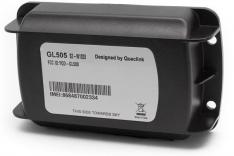GSatTrack provides security from international cargo theft
Cargo theft is estimated to cost shippers and trucking companies at least $30 billion a year in the US, according to the FBI. Most cargo theft occurs on the weekend and when the freight has been left unattended.
About GSatTrack
GSatTrack is a web-based, integrated satellite and GSM tracking solution, compatible with modern web browsers and works on a multilingual platform that brings together all the positions of every manufactured product under one location and displays and manages them in a single unified interface. With GSatTrack, asset locations and movements - including position, speed, altitude and heading - are tracked in real-time worldwide via GPS updates.
By using GPS satellites with the latest hardware and technology, any asset on earth, whether it's people, vehicles, containers, or any moving object can now be tracked. Our technology allows the integration of all types of tracking equipment into one easy to use platform. The tracking equipment determines its location by triangulating a position using GPS (Global Positioning System) and then transmits this information via GSM, Satellite, or VHF to a central server for processing. Any operator can view and control any number of real time assets simultaneously.
The Customer Situation
A global company specializing in manufacturing office equipment needed help monitoring the delivery of valuable parts. For some time the company was receiving documentation that their goods were being sent and processed for delivery but the shipped goods were never reaching their final destination. In some cases these packages would even show boarding planes but failed to reach the locations where they were to be delivered. The company was losing thousands of dollars monthly without clear answers as to why.
The Challenge
Tracking cargo is never easy and is filled with complications. These can be related to technological shortcomings or even regulations meant to prevent interference with onboard communication on aircraft. The manufacturing company’s use case posed additional challenges as the tracking device provided would also be required to fit within the box the parts were being shipped in. This had to be done without reducing that protective packaging that kept the parts inside the shipping box from being damaged.
Providing a workable solution for our client required addressing each challenge individually. A satellite solution for tracking cargo is often difficult because it requires that the unit has clear view of the sky. Even containers on ships are difficult to track for this reason because they are often stacked on top of one another. This ruled out placing a satellite based tracking unit within the boxes.
The second option was a cell based device. While these devices are typically much smaller than satellite solutions and there are thousands of available options; they all have their own challenges. Most cell based devices stop reporting once they get above 10,000 feet which is far outside of the range of most cell towers. Secondly even if the cellular devices do continue to report they could interfere with communication being used onboard the flights. Lastly as anyone travelling overseas has experienced when these devices reached the their final destination there were few guarantees that they would work in the new area. Often times SIM cards used in cellular devices like your phone are based on regional coverage areas. The destinations where the manufacturing company was sending their parts was all over the globe.
The Solution
Doing some research and working with our own hardware partners we came across a cell based device developed by Queclink. This device had the capability of determining when it was in flight and entering a sleep mode where it would not transmit until it was back on the ground. This provided us with a device that didn’t interfere with the instrumentation on aircraft. Unfortunately the unit was still too large for our needs and would take up too much space within the box with manufacturer's parts, and there was still the problem of finding a SIM card that would work anywhere in the world.
At our core, GSE is an engineering firm that specializes in building solutions for our clients. Instead of giving up on the Queclink device we instead modified it in a way that made it smaller. We took its batteries out and laid them out lengthwise on an extremely thin piece of nylon which also contained the antenna. This reduced the width while allowing the intelligent pieces of the device to remain intact and still fit within the box of our client. Lastly through our many partners we found an international data SIM card that provided data coverage in over 273 countries. This provided our customer a completely new device and solution while utilizing a device we had integrated with our tracking portal years before.
The Result
By pairing the new tracking device with the GSatTrack software, the manufacturing client was able to track their packages. As their delivery company had clearly shown, the shipments were arriving properly at their respective destination airports, but that’s where the information lost its accuracy. It seemed that the company handling the shipping for the manufacturing company had to use local delivery partners because they didn't have a strong presence in the countries or areas where some of these packages were being sent too. In some cases the parts being shipped were being taken to other destinations locally and never delivered to the correct location. But the manufacturing company also found that their parts were commonly marked as received by these local delivery companies and then sent back on a plane to another destination. It turned out that their parts weren't just being stolen they were being resold.
In the end the manufacturing company was able to bring their findings to their shipping company and change their shipping practices. This resulted in a new local delivery provider to be used by the larger shipping company and stopped the bleeding of random packages disappearing when they passed through this location.
Seeing other opportunities to utilize the data gained from the tracking unit and GSatTrack the manufacturing company made it a standard practice to start randomly sending out the small tracking units with other packages.
This new practice attained the goal of decreasing theft during shipping, but it also let the manufacturer know how long parts were being stored on shelves before being used for repair. This meant that less repair parts had to be manufactured or shipped as new guidelines were rolled out for how long locations held onto the parts. In the end the manufacturing company saved much more than the initial moneys being lost through shipping. They were able to streamline processes and even reduce internal theft saving thousands of dollars and increase productivity with the data gained through their new custom solution provided by GSE.







